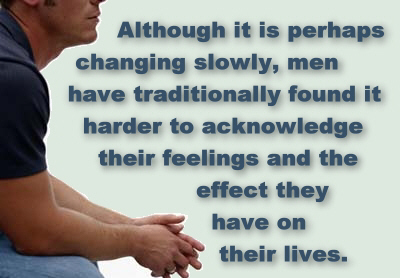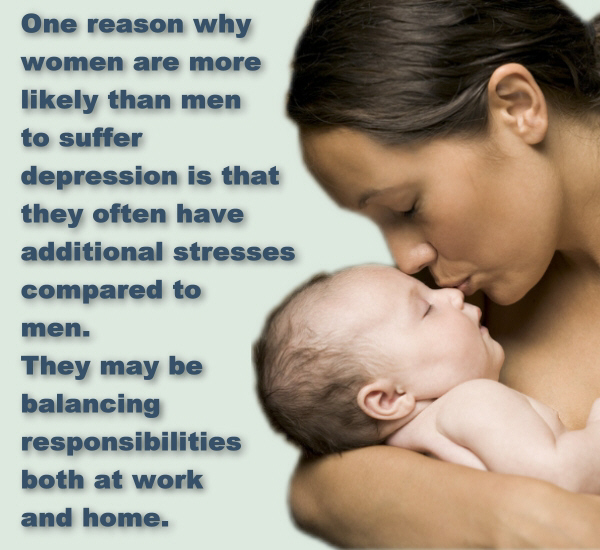The differences between depression in men and women
Men and women may require different approaches to the treatment of their depression, including in counselling and psychotherapy.
Depression in men
According to the statistics, men are less likely to suffer from depression than women. However, these figures must be considered in light of the fact that men are less likely to admit to depression. Moreover, some studies have suggested that doctors are less likely to suspect it. There is no doubt that depression is as serious a problem in men as it is in women. Although more women than men attempt suicide, men are much more likely to succeed when they attempt it, with four times as many men killing themselves than women.
Suicide is the second greatest cause of fatality in men under 25, after road accidents. The Samaritans have identified younger men as a national priority in their strategy for reducing self harm. Nor is it just younger men who are at great risk of suicide. The rate of suicide in men increases after age 70, reaching a peak after age 85.
Depression can also affect the physical health of men in different ways to women. A recent study shows that, although depression is associated with an increased risk of coronary heart disease in both men and women, men suffer a higher death rate because of it.

Although it is perhaps changing slowly, men have traditionally found it harder to acknowledge their feelings and the effect they have on their lives. Moreover, men's depression is often masked by the avoidance that may be characterised by heavy alcohol or drug use, or in the habit of working excessively long hours.
Depression typically shows up in men, not as feelings of helplessness and vulnerability, but as being irritable, angry and uncooperative. Depression may therefore be more difficult to recognise in men. Even if a man realises that he is depressed, he is perhaps less willing than a woman to seek help. Encouragement and support from a partner and/or family members can make a big difference here, especially if acknowledgement of problems is viewed, not as a weakness but as a positive trait.
In the workplace, employee information and manager training can create an environment where problems can be acknowledged before they become too great and therefore more difficult or costly for the employer. Health and Safety legislation now includes a duty of care on employers to have regard for the psychological health of their employees. In part this may explain the growth of employee assistance schemes or workplace stress reduction programmess. Both of these can be of assistance in helping both male, and also increasingly stressed female, workers to understand and accept depression as a real illness that needs treatment. Back to Top
Depression in Women
Women are about twice as likely as men to experience depression. A number of factors may explain this. In part, depression in men may be unreported or may present indirectly due to differing attitudes to depression between the sexes. Hormonal factors may contribute to the increased rate of depression in women. Changes in menstrual cycle, pregnancy, miscarriage, the time immediately after the birth of a baby, pre-menopause and menopause are all associated with hormonal changes. There is good evidence to suggest that these can trigger depression.
One reason why women are more likely than men to suffer depression is that they often have additional stresses compared to men. They may be balancing responsibilities both at work and home
Leaving aside hormonal changes, major life events, in and of themselves, can be sufficient to trigger a depressive episode. For example, many women are vulnerable to depression after the birth of a baby. This may in part be due to hormonal changes but is equally likely to arise from the responsibilities and stresses associated with parenting. A further reason why women are more likely than men to suffer depression is that they often have additional stresses compared to men. They may be balancing responsibilities both at work and home, may be a single parent, or may find themselves caring for both children and aging parents. Back to Top
Next Page (Depression Facts) or use the links below and at the top top left to skip to a specific section.
Mild Depression
Moderate to Severe Depression
Differences between depression in men and women (you are here)
Depression symptoms
Depression facts (next page)
Test for depression
Different experiences of depression are discussed on the pages above, together with some of the therapeutic options relevant to each type.

